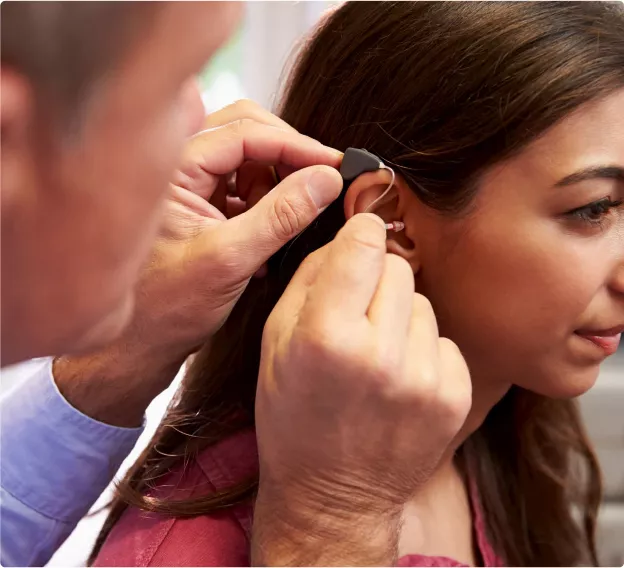Accessibility in theatres for people with hearing loss has long been a hot topic and most venues ensure there are assistive listening systems in place, but does this ensure a good experience?
The British Irish Hearing Instrument Manufacturers Association, BIHIMA, has been exploring this question with hearing device user Susan Hamilton, as part of a project to establish a standardised level of service at theatres across the country.
Susan loves going to the theatre and is well prepared for potential issues. She contacts venues ahead of time and, if possible, visits the venue in advance. Yet in the last 3 years, she has only had two problem free visits to a theatre out of 12 performances attended. From out-of-date systems to ineffective technology and a night where the headphones provided picked up every backstage call alongside the performance audio; it’s rarely straightforward.
Susan said: “The front of house staff I encounter are most often very eager to help, but unfortunately the systems seem to be managed or tested by people who don’t fully understand hearing loss, nor know what to do if it hasn’t worked. Loop systems are only really suitable for people who don’t wear prescriptive hearing devices and systems using the T setting tend to be intermittent, poor quality and quite often drops out completely. In summary, hearing devices are extremely sophisticated and unfortunately listening assistive systems are not.
“I have friends who use different hearing devices and we’ve all experienced similar challenges. On occasions we’ve gone to theatre together and each had a different outcome when using the same system, which just shows how variable it can be. We need people to understand that hearing devices are prescriptive to an individual’s hearing loss, therefore offering a single system simply cannot work. It’s like offering the same pair of glasses to everyone with a sight impairment and expecting them all to see perfectly. Theatres are very keen to try and make performances accessible, but from my experience we certainly aren’t there yet.”
There is certainly no ‘one size fits all’ approach, yet at the same time having only one system in place is not inclusive. The lack of standardisation creates a considerable barrier for people with hearing loss. BIHIMA is now calling for an agreed minimum standard at venues across the UK.
Paul Surridge, chair of BIHIMA, said: “In 2023 we should not be in a situation where hearing instrument users are still experiencing these issues. Looking through the accessibility information published on theatre websites you can see the disparity in support; for some it’s a priority and for others it’s almost a tick box exercise.”
AccessAble is an organisation that has surveyed tens of thousands of venues including theatres, shops, restaurants, hotels, universities, hospitals and many more, to provide a comprehensive accessibility guide. Beth Wooller is an ambassador for AccessAble ad lives with hearing loss. She said: “As someone with a hearing loss who uses hearing aids and lip reading, I find the mixed and often unpredictable experience of theatre-going can put me off going to the theatre at all.
“It often seems that every theatre has a different accessibility booking process and sound quality during the performance, with staff’s deaf awareness varying greatly at every stage. I often rely on my companion to repeat large parts of the performances otherwise I feel very left out. While improved hearing aid systems are being put in place, more subtitled performances and easier access to seats near the front to lipread would be welcomed. AccessAble’s website takes some of the stress out of theatre-going, and I’d love to see more theatres sign up and show their commitment to being truly inclusive.”
Bluetooth Auracast has been hailed as the next generation of assistive hearing technology and seems to have the potential to resolve many of the challenges created by the current inconsistencies in system availability and experience. This innovation has yet to reach the market but could be a significant development in how people experience audio in venues such as theatres, train stations or shopping centres.
Paul Surridge continued: “It’s clear that venues need to better understand how their chosen systems work and to offer effective alternatives. Until we can test new technologies such as Auracast we’d welcome a collective agreement to drive positive change in the industry, such as a minimum level of service those with hearing loss can expect.”
